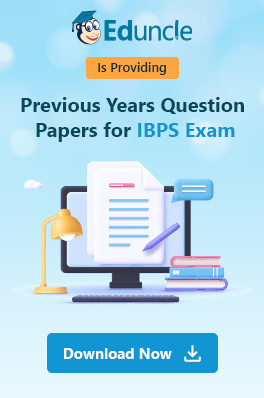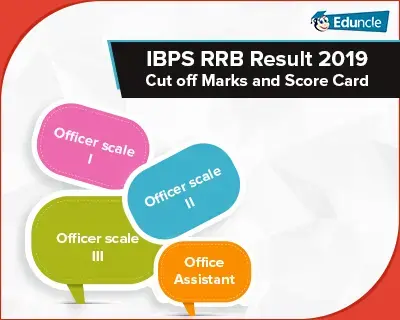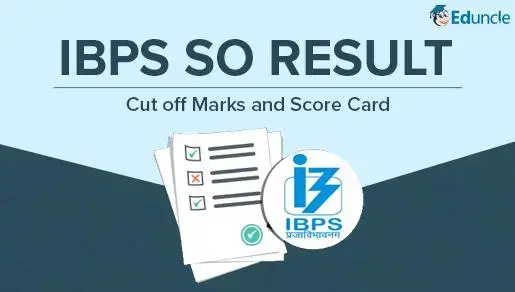Congrats! You have covered most of the important topics for banking interview preparation. We hope now, you are fully confident for Banking Interview after reading our previous blogs. But, it does not mean you have finished your preparation. To defeat 99% of the competitors, you only have to ace the interview round.
We have already published the four articles of the Banking Preparation Concept to avoid rejection.
Part 1 - Principle of Core Banking
Part 2 - Banking Functions and Account
Part 3 - Reserve bank of India
Part 4 - Banking Financial System
Think about it, if you are at the last stage to achieve your goal, but you failed then what will you do? Don’t take the risk! If you want to avoid rejection, prepare all the topics which can be asked in a banking interview exam. There are casual Prelims and Mains attempts but no casual Interview Attempt.
In this blog, we have mentioned the public sector undertaking and mutual fund details.
Public Sector Banks
To understand what is public sector bank, you need to know about PSU first.
Public Sector Undertaking or PSU play a major role in our Indian Economy. It is a state-owned enterprise in India which is directly maintained by Union Government of India or State or Territorial Government or both. PSU works in our economy since independence.
Banks which are held more than 50% by the government are called Public Sector Bank. There are 21 banks and 1 state-owned payment bank (India Post Payments Bank) which comes under the Public Sector
The list of these banks is given below: -
| Allahabad Bank |
| Revenue - 19,051 crore (US$2.7 billion) |
| Read More About Allahabad Bank |
| Andhra Bank |
| Revenue - 18,027.42 crore (US$2.5 billion) |
| Read More |
| Bank of India |
| Revenue - 41,796.47 crore (US$5.8 billion) |
| Check History Bank of India |
| Bank of Maharashtra |
| Revenue - 13,052.98 crore (US$1.8 billion) |
| Know More |
| Canara Bank |
| Revenue - 48,942 crore (US$6.8 billion) |
| About Canara Bank |
| Central Bank of India |
| Revenue - 2,526.68 crore (US$350 million) |
| Check Profile of Central Bank of India |
| Corporation Bank |
| Revenue - 19,411.24 crore (US$2.7 billion) |
| Corporation Bank History |
| IDBI Bank |
| Revenue - 28,043.10 crore (US$3.9 billion) |
| About IDBI Bank |
| Indian Bank |
| Revenue - 21,689.67 crore (US$3.0 billion) |
| Read More About Indian Bank |
| Indian Overseas Bank |
| Revenue - 23,517.29 crore (US$3.3 billion) |
| About Indian Overseas Bank |
| Oriental Bank of Commerce |
| Revenue - 20,058.71 crore (US$2.8 billion) |
| Know More |
| Punjab & Sind Bank |
| Revenue - 8,744.34 crore (US$1.2 billion) |
| Know History |
| Punjab National Bank |
| Revenue - 47,424.35 crore (US$6.6 billion) |
| Know Profile of Punjab National Bank |
| State Bank of India |
| Revenue - 210,979 crore (US$29 billion) |
| About SBI |
| Syndicate Bank |
| Revenue - 6,913.09 crore (US$960 million) |
| Read More |
| UCO Bank |
| Revenue - 18,560.97 crore (US$2.6 billion) |
| Overview of UCO Bank |
| Union Bank of India |
| Revenue - 32,198.80 crore (US$4.5 billion) |
| About Union Bank of India |
| United Bank of India |
| Revenue - 9,936.67 crore (US$1.4 billion) |
| Read More |
List of Merged Bank in 2018
| Bank of Baroda |
| Revenue - 12,379 crore (US$1.7 billion) |
| About BOB |
| Vijaya Bank |
| Revenue - 10,645.73 crore (US$1.5 billion) |
| Know More |
| Dena Bank |
| Revenue - 42,199.92 crore (US$5.9 billion) |
| Read About Dena Bank |

Know More: -
Public Sector Bank: Establishment, Headquarters and Taglines
List of CEOs, MDs & Heads of Indian Banks [Updated]
Mutual Fund - Definition, Classification, Pros & Cons
If you want to avoid rejection in the bank interview then you must know about the investments Indian people make. Mutual funds and SIPs are very important from the interview’s perspective. Read further the what are the commonly asked questions.
What is Mutual Fund?
What are the benefits of Mutual Fund?
What is the structure of Mutual Fund?
How are Mutual Fund Classified?
Definition of Mutual Fund
The word Mutual implies the group of people coming together and fund means putting money, therefore, the term Mutual Fund describes the group of people putting money together to buy stock and bonds or both. These professional funds managed by the manager. A manager analysis the market and provide you many routes in which you can invest your money safely. It is your personal choice which path you want to choose based upon your goal you decide. The manager also ensures the risk is controlled because all stocks may not move in the same direction at the same time.
Download IBPS Model Test Papers Free PDF Now!
Pros and Cons of Mutual Funds
As you know, presently, Mutual Fund in India is the most popular investment scheme which has many advantages and disadvantages. Below, we have mentioned some benefits to invest in a mutual fund: -
It's safe
Liquidity
Diversification
Cost-efficiency
Automated payments
Suite your financial goals
Quick and painless process
Tax saving under section 80(c)
Invest in smaller denominations
A systematic or one-time investment
Investment easily manages by experts
Investors can invest in any investment option
No need to keep updated news of market movements
The disadvantage of the Mutual Fund is: -
High Expense Ratios and Sales Charges
Management Abuses
Tax Inefficiency
Poor Trade Execution
Classification of Mutual Fund
Mutual Fund is classified into three broad categories: -
Portfolio Classification
Safety of investments
Capital appreciation
Modest risk of investment
Volatility in interest rates
Specific income producing security
Speculative and risky investments
Functional Classification
Open-ended scheme
Close-ended scheme
Geographical Classification
Domestic funds
Offshore Funds
Structure of Mutual Funds
Mainly, the mutual fund is divided into five tired structure: -
Sponsor
Trustee
Asset Management Company
Custodian
Registrar and Transfer Agent (RTA)
Sponsor
A sponsor is basically one person or group of persons who are responsible to float a mutual fund. In other words, you can say that the sponsor is a promoter of a mutual fund. Sponsor has put 40% of share-holding in an asset management company to set up the mutual fund. The sponsor should have a track record and good reputation of fairness in all business transaction. He must have a positive net worth in the last 5 years.
Trustee
Trustee is the main body of a mutual fund. It is an independent entity which is responsible to manage and care the investors’ money. The board of trustee appoint by sponsors after the SEBI approval. Generally, 4 trustees include in a mutual fund in which 2-3 trustee works independently.
Get the Free IBPS Study Material designed by Experts
Asset Management Company
Asset management company is the investment company that invests the investor's fund with securities in the market. It is a private company and the directors of AMC works 50% independently. There are many asset management firms in Asia such as: -
Affin Hwang Asset Management Berhad
Asia Frontier Capital Ltd.
Capital Dynamics
Conning & Company
Global Investment House
IDFC Project Equity
IIFL
Investcorp
Mirae Asset Group
Nomura Group
SinoPac Financial Holdings
Value Partners
To know More Asset Management Company – List of Asset Management Firms in World
Custodian
Custodian is a financial organization appointed by the trustee. However, sponsor and custodian should be registered with SEBI, but both can never be the same in a mutual fund. The main role of the custodian is holding the safekeeping assets such as bonds, stocks, commodities etc.
Registrar and Transfer Agent (RTA)
The registrar and Transfer Agent maintain investor details such as documents, investment records, etc. But, it is not compulsory to include an RTA in a mutual fund structure.

We hope, this article will help you to know about the Public-Sector Undertaking and Mutual Fund, its Benefits, Structure. Many questions are asked from the above-mentioned topics in Bank Interview. So, if you want to avoid rejection in Banking Interview then read carefully and share it with your friends who also prepare for it.
This article will also help the students who want to make their career in mutual fund and who are thinking to invest in mutual fund, but they don’t know anything about it.
Now soon, in the next part, we will discuss more about the banking Interview concepts to avoid rejection.
If you have any doubt regarding this article, you can ask our experts through the comment box. We will definitely try to solve your queries as soon as possible.
Click Here to Read Part 4 Click Here to Read Part 6

















